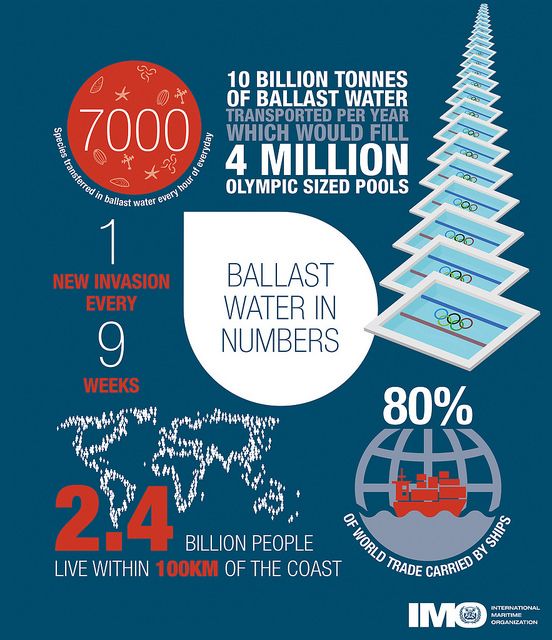Ballast Water Management Treaty Ratifications Boost
Published on by Water Network Research, Official research team of The Water Network in Government
Four more States have become Party to IMO’s Ballast Water Management Convention, designed to counter the threat to marine ecosystems by potentially invasive species transported in ships’ ballast water.

The Convention enters into force on 8 September 2017 and will require ships to manage their ballast water, which can contain thousands of aquatic or marine microbes, plants and organisms, which are then carried across the globe.
The Bahamas deposited its instrument of accession on Thursday (8 June), following accession by Singapore (8 June), ratification by Australia (7 June) and accession by United Arab Emirates (6 June). Saudi Arabia became a Party in April. This brings the number of States party to the BWM Convention to 59, representing 65.18 % of the world’s merchant fleet tonnage.
Ballast water may be taken onboard by ships for stability and can contain thousands of aquatic or marine microbes, plants and animals, which are then carried across the globe. Untreated ballast water released at the ship’s destination could potentially introduce a new invasive marine species. Hundreds of such invasions have already taken place, sometimes with devastating consequences for the local ecosystem.
The International Convention for the Control and Management of Ships' Ballast Water and Sediments (BWM Convention ) was adopted in 2004 to introduce global regulations to control the transfer of potentially invasive species. Once the treaty enters into force, ballast water will need to be treated before it is released into a new location, so that any microorganisms or small marine species are killed off.
Read more: IMO and Hellenic Shipping News
Media
Taxonomy
- Decontamination
- Environmental Policy
- Contaminant Removal
- Governance & Policy
- Pollution
- Ballast Water
- Pollution
- Integrated Water Resources Management (IWRM)